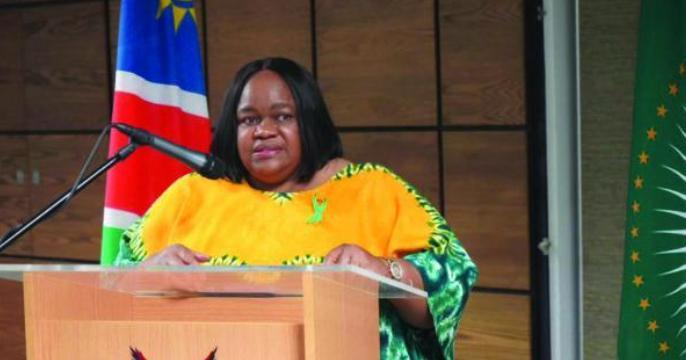Africa-Press – Namibia. Minister of Home Affairs, Immigration, Safety and Security Lucia Iipumbu says the tendency of staff members to tell clients that their documents are waiting for her signature affects her mental health and concentration.
Speaking during the workplace mental health and suicide prevention awareness session at the ministry’s headquarters in Windhoek on Tuesday, Iipumbu said such actions, though seemingly minor, have serious effects on both staff and leadership well-being.
“Do you know that the people you tell that the files are in my office follow me? Whether I’m in China or in Germany, they call me. Imagine you are in the middle of a discussion at an international platform, and here comes a call asking you about a document you need to give feedback on. It has an impact on my mental health and my concentration,” she said.
The session, held in collaboration with the Ministry of Health and Social Services, aimed to raise awareness about the importance of mental wellness at work.
Iipumbu said poor mental health reduces performance and service delivery.
“The moment somebody’s mind is disturbed, the level of concentration is compromised. At the end of the day, productivity is affected, and output becomes zero,” she said.
She said it also affects her mental health when she sits in cabinet and hears that her ministry ranks low in government performance and budget execution.
“When I sit in Cabinet and hear that the Ministry of Home Affairs is second last in the queue in terms of performance or budget execution, do you think that makes me happy? It also affects my mental status because I don’t want to be associated with failure,” she said.
Iipumbu also called on staff to show empathy and professionalism when serving the public.
“Even your client that is coming is now wondering where to start. You have disturbed their peace and when they leave this office, they say they don’t want to come back again,” she said.
She reminded employees that kindness improves service.
“It would never cost you anything to just extend a little bit of courtesy. Say, ‘Can I help you? You are looking for a birth certificate? Let me see your documents.’ Those small things make a big difference,” she said.
At the same event, health programme officer Lineekela Kalimba from the Ministry of Health and Social Services said Namibia is facing a growing mental health crisis. She described it as a “pandemic” driven by social pressures, workplace stress, and stigma.
“For the first time since I started working in mental health in 1995, we are admitting many professionals – lawyers, doctors, specialists, nurses, and magistrates – because of work pressure and the things our minister was talking about.”
Kalimba said Namibia currently has only two mental health facilities, at Windhoek Central Hospital and Oshakati’s Ward 16, which are struggling to cope with demand.
“We are seeing 91 544 patients at our outpatient departments in both Oshakati and Windhoek. Out of these, 11 489 are admitted,” she said.
Kalimba said the country faces a shortage of specialists. “We only have five psychiatrists, seven psychologists, and 11 nurses who specialise in mental health across the country,” she said.
“This is far below what is needed to meet the growing demand.”
She said the shortage has left health workers overstretched. “On average, between 150 and 200 patients are seen per day at mental health outpatient units, while Ward 16 at Oshakati Hospital alone also sees more than 100 patients a day,” she said.
For More News And Analysis About Namibia Follow Africa-Press






